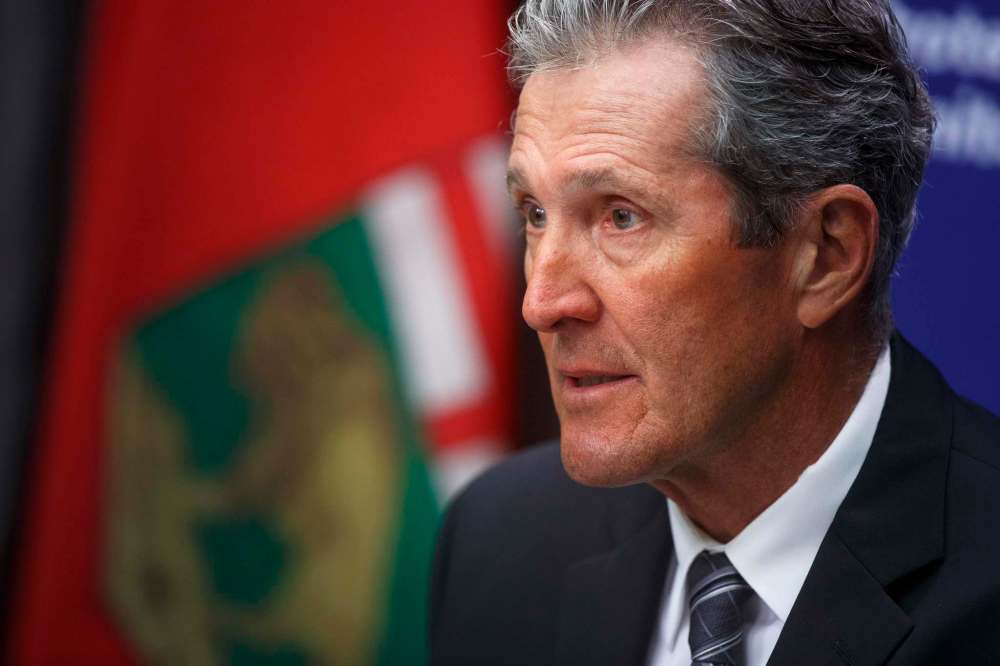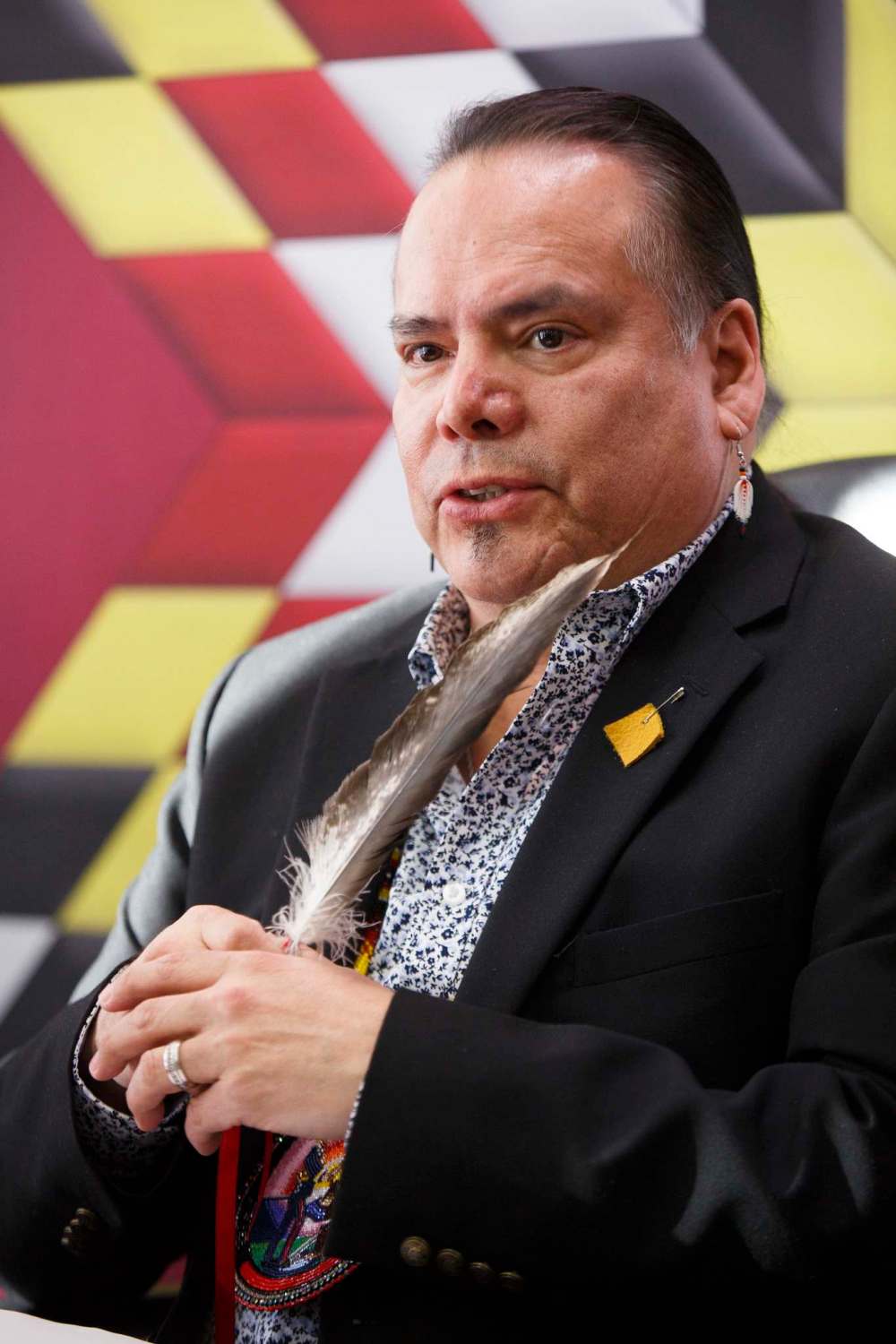Deal dials up faster internet, cell service
First Nations, critics fear higher fees, limited access to better broadband in rural areas
Advertisement
Read this article for free:
or
Already have an account? Log in here »
To continue reading, please subscribe:
Monthly Digital Subscription
$0 for the first 4 weeks*
- Enjoy unlimited reading on winnipegfreepress.com
- Read the E-Edition, our digital replica newspaper
- Access News Break, our award-winning app
- Play interactive puzzles
*No charge for 4 weeks then price increases to the regular rate of $19.95 plus GST every four weeks. Offer available to new and qualified returning subscribers only. Cancel any time.
Monthly Digital Subscription
$4.99/week*
- Enjoy unlimited reading on winnipegfreepress.com
- Read the E-Edition, our digital replica newspaper
- Access News Break, our award-winning app
- Play interactive puzzles
*Billed as $19.95 plus GST every four weeks. Cancel any time.
To continue reading, please subscribe:
Add Free Press access to your Brandon Sun subscription for only an additional
$1 for the first 4 weeks*
*Your next subscription payment will increase by $1.00 and you will be charged $16.99 plus GST for four weeks. After four weeks, your payment will increase to $23.99 plus GST every four weeks.
Read unlimited articles for free today:
or
Already have an account? Log in here »
Hey there, time traveller!
This article was published 14/05/2021 (1703 days ago), so information in it may no longer be current.
The province has signed an agreement with Xplornet Communications to take over management of Manitoba Hydro Telecom’s broadband network in a deal that Premier Brian Pallister said will mean more than 125,000 unserved or underserved Manitobans are a step closer to receiving reliable high-speed internet and cellular services.
Few details of the arrangement have been disclosed — including just how much Xplornet is prepared to invest. Small internet service providers (ISPs) in Manitoba, who have relied on that network to build small connections to many communities, are worried about retaining access to the network at a reasonable price.
Pallister said, “this is big day” a few times during a press conference on Thursday.

He said, “Too many Manitobans — more than in any other part of the country — are deprived of the opportunity of reliable internet and cell service. In particular, our rural and northern communities. In particular, our Indigenous communities.”
The network in question is owned by Manitoba Hydro and includes thousands of kilometres of fibre-optic cable, created to communicate with northern hydroelectric facilities and to transmit data.
The province issued a request for proposal in August for third party management of the network and Thursday’s announcement was that Xplornet has won that process.
In the meantime, there has been a stop sell order since last August and no new business has been allowed on the network, which has meant that many small ISPs have not been able to do any improvements to their existing clients’ networks during the pandemic, a time when broadband access has been so critical.
Central Services Minister Reg Helwer said the province and Xplornet now have 45 days to finalize the contact and that the “stop sell” order will remain in place until then.
Opposition party officials were not impressed, in particular because a publicly-owned asset has now been transferred to a private company.
“That is not something to be celebrated,” said Hydro critic Adrien Sala.
He said he feared that consumer costs for broadband services will rise and that small local internet service providers will be shut out.
In an email exchange with Helwer, he said, “Manitoba did assess proposed pricing as part of the evaluation of proposals and will include language in the contract to ensure pricing is competitive as a contract compliance component.”
Cindy Findlay, chief operating officer of Broadband Communications North, an Indigenous-owned not-for-profit ISP that services more than 50 rural, northern and remote communities in Manitoba, said it’s hard to know what to expect.
“It feels better knowing the direction they are going but it seems to me that they were trying to fix a system that was not really broken,” she said.
The premier did acknowledge that Manitoba rates last or near the bottom among the provinces in many metrics when it comes to broadband services in rural, remote and Indigenous communities.
Findlay pointed out that while the premier said Xplornet will be working with Indigenous communities, “We all know that could mean a lot of different things to different people. We do know there has not been a lot of consultation with Indigenous communities.”
Grand Chief Garrison Settee, who represents all the First Nations in northern Manitoba, said he hopes that the new arrangement will impact all Northern communities, not just a couple.

“We are disappointed that in 2020, the province stopped a number of shovel-ready projects that would have brought high-speed internet to more of our communities,” he said. “We will be meeting with the province’s representatives to seek clarification on their plans to ensure all northern communities will have access to high-speed internet and cellphone services.”
Dave MacKay, the executive director of the Coalition of Manitoba Internet Service Providers, said he did not want to seem like he was a detractor, but was not happy to hear the province does not intend to make any big investments.
“The government has chosen to sidestep its own backyard and reach out to a large non-Manitoba ISP that has virtually no fibre footprint in the province,” he said.
The province’s broadband coverage is so poor largely because in the past, telecommunications companies have chosen not to invest the significant capital required to connect sparsely populated remote communities.
As an indication of the kind of money involved, Winkler-based Valley Fiber recently announced that it and its Dutch partners would be investing $260 million to provide broadband connection for a number of southern Manitoba communities.
In an email exchange, Johanne Senécal, vice-president of government and public affairs for Xplornet, said she was not in a position to talk about how much the company was planning to invest in Manitoba.
As for working with other ISPs, she said, “Xplornet is open to working with local ISPs to assist them in improving their services through open access approaches to the network we develop.”
Pallister said the “historic partnership” with Xplornet will deliver high-speed internet to about 30 First Nations and 270 rural and northern communities.
The agreement will also serve 350 communities with cellphone access.
— with files from Larry Kusch
martin.cash@freepress.mb.ca



